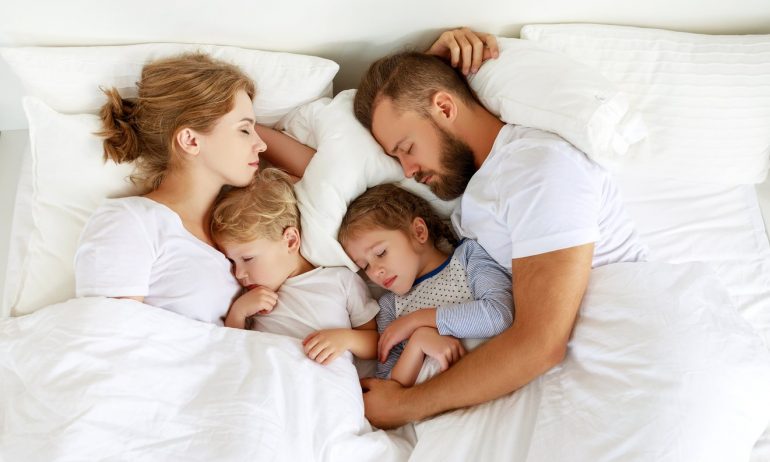Of Registered Teachers / School Psychologists, Anastasia Georgiou and Maria Prastiti
The importance of sleep
Sleep is a basic need and condition for the overall development of children. Specifically, sleep is associated with physical development, the development of cognitive skills (memory, learning, concentration, attention, etc.), and the emotional development of children. According to research, sleep problems seem to increase the likelihood of mental health problems. Therefore, sleep and mental health are closely linked. Parents need to take care of both the quantity and quality of their children's sleep, but also their own sleep as parents.
What is a harvest?
The term co-sleeping refers to the practice of sleeping together between parents and child, either in the same bedroom or in the same bed. Harvesting can last from a few hours of shared sleep to the entire night. This is a much-discussed and controversial topic that has been extensively studied by various experts conducting research on children's sleep.
Harvesting and culture
It is worth noting that the phenomenon of harvesting is closely linked to the cultural context in which children develop, as it is found in almost all cultures. Several studies suggest that Western societies tend to believe that sleeping with children may have a negative effect on their development of independence and autonomy. On the other hand, in Eastern societies where collectivism is usually encouraged, harvesting seems to be a more accepted and widespread practice.
Up to what age?
Harvesting is usually more common in infants and early childhood. Infant fertilization can have many benefits, as it is said to facilitate breastfeeding and encourage positive parenting. However, it seems that with the beginning of schooling, the harvest tends to be limited and ceases to be practiced. From an early age, it is important that parents make efforts to strengthen the autonomy of children, as they are prepared to be able to respond to various changes in their lives.
Fertilization and stress
According to several studies, in school-age children, crawling appears to be associated with difficulty sleeping, increased levels of stress, and fatigue and drowsiness during the day. Many children who have difficulty sleeping have an increased chance of developing severe anxiety and mood problems. It is common for children with high levels of stress to have difficulty or refuse to leave their parents at night, with the result that various excuses are put forward to avoid sleeping alone.
Therefore, it is of the utmost importance that children have their own separate bedroom, in which they feel comfortable and safe. It is also important that they learn to respect everyone's privacy and to be able to work both with their parents and individually, independently.
It is very important for parents to ask themselves how their own attitude may affect the child's sleep independence. Do parents, involuntarily or not, reinforce and maintain the practice of harvesting? Who finds it more difficult to sleep independently? Themselves or the child?
If the crop occurs for a long time despite the parents' efforts to stop it, then it is good for the parents to turn to a specialist who will help them manage the situation, with the ultimate goal of enhancing the child's normal psycho-emotional development.
In summary, sleep is a very important bio-psychosocial experience which is important to approach taking into account various factors, such as cultural context, norms, beliefs and relationship dynamics.
Bibliography
Borrell-Carrió, F., Suchman, AL, & Epstein, RM (2004). The biopsychosocial model 25 years later: principles, practice, and scientific inquiry. The Annals of Family Medicine, 2 (6), 576-582.
Palmer, CA, Clementi, MA, Meers, JM, & Alfano, CA (2018). Co-sleeping Among School-Aged Anxious and Non-anxious Children: Associations with sleep variability and timing. Journal of Abnormal Child Psychology, 46 (6), 1321-1332.
Perfect, MM, Levine ‐ Donnerstein, D., Archbold, K., Goodwin, JL, & Quan, SF (2014). The contribution of sleep problems to academic and psychosocial functioning. Psychology in the Schools, 51 (3), 273-295.
